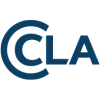Are you and your team unknowingly infringing copyright? Discover and avoid the most common pitfalls
Are you and your team at risk of copyright infringement? Discover why it’s easy to infringe copyright at work inadvertently. Plus, why upskilling your team is a solid strategic move to avoid infringing on copyright at work.
A 2024 survey conducted by Savanta, commissioned by the Copyright Licensing Agency (CLA), found that:
- 45% of respondents do not agree that their company is taking sufficient steps to reduce the risk of accidental copyright infringement
- 72% of UK professionals agreed that copyright is a risk for their business
This certainly is worth considering for UK organisations who champion responsible business and governance strategies.
At CLA, we recognise that topics like Cybersecurity Awareness, GDPR, and EDI training are crucial components of your employee onboarding process. However, have you thought about the potential risks your organisation might face due to gaps in copyright knowledge? Addressing this is essential to ensure a thorough understanding of compliance matters.
Bridging the gap: Comprehending copyright at work
Copyright. It’s everywhere. Woven into the fabric of a modern workplace, shaping how we share, store, and use content. Let’s delve deeper into exposing some of the surprising ways you might be infringing copyright at work unknowingly.
Surprising way #1:
“By saving online articles or extracts on internal platforms such as shared drives or intranets”
This is a very common practice. It’s important to remember, however, that just because something is available online doesn’t mean you’re legally permitted to save articles or extracts to the multitude of internal platforms your organisation may use. By doing so, you or your colleagues are making a copy of this content. Copyright applies to most digital content, meaning you must have permission before saving someone’s published work.
Surprising way #2:
“By sharing extracts of content from a subscription title with colleagues via email”
As above, sharing the work of others via email also falls under copying or reuse actions, which can lead to infringement of copyright. Copying and pasting from online subscriptions into emails also falls into this category too.
Subscriptions provide access to content, but it’s crucial to understand the distinction between accessing and having the rights to copy and share it.
Many publications include explicit copyright statements that forbid copying or sharing their content. Therefore, subscribing to a service does not automatically grant you the right to reuse its content. Misinterpreting subscription access can inadvertently result in copyright infringement.
Surprising way #3:
“By sharing copies of published industry reports and market research”
Many published industry reports and market research papers are protected by copyright. If you or your organisation reuse these reports for training, research, or any other purpose, you may be infringing copyright unless you have obtained the necessary permissions.
Surprising way #4:
“By repurposing published content on your organisation’s website”
Another surprising way you could be infringing upon copyright: repurposing articles onto your website, also known as website republishing. This practice can inadvertently lead to copyright infringement. When you repurpose content onto your company’s website, you are essentially making a copy of that content. Therefore, obtaining adequate copyright permission is likely necessary.
Surprising way #5:
“By reusing published content in an internal or external presentation”
The same copyright rules apply for presentations! This includes screenshots to PowerPoint or any presentation decks for internal and external presentations.
Screenshotting or copy and pasting content from published sources counts as copying and reuse of content. Don’t let this trip you up and lead to infringement of copyright law.
Surprising way #6:
“By circulating press clippings to multiple recipients within your organisation”
Thousands of UK organisations rely on media monitoring providers to access media coverage. If your organisation receives media clippings from a PR agency or a Media Monitoring Organisation, you may need copyright permission to share and circulate these clippings internally, particularly if the content being shared sits within CLA’s repertoire.
Agreements between CLA and Media Monitoring Organisations come with specific limitations regarding multiple access of clippings. Copying actions that could lead to infringement include saving them to a shared drive, circulating via email, printing, copying, or forwarding them within your organisation.

Using content responsibly
Copyright is more than just a set of rules. It is about respecting creativity and ensuring the continued production of high-quality content in an increasingly competitive landscape. CLA provides organisations with blanket Copyright Licences, from which authors, publishers and visual artists are remunerated for the reuse of their work. Understating the basics of copyright and the permissions granted under the CLA Licence is crucial to responsible content use.
Enhancing copyright awareness in the workplace
We’ve only scratched the surface of this theme in this article. There are lots of surprising ways to infringe upon copyright at work. Copyright misconceptions run deep, and misunderstandings are understandably frequent occurrences. That’s why we created a new CPD-certified course: to break down the complexities, clear up confusion, and ensure your teams understand how to navigate copyright law in a responsible manner.
From copyright fundamentals to real-world workplace scenarios, the course covers what you and your team need to know. Copyright in the Workplace course is interactive, engaging, and narrative-led, making learning easy and practical.
Additionally, our accompanying CPD-certified Copyright Companion resource provides ongoing support and solutions whenever copyright questions arise.
How will Copyright in the Workplace course help your team?
- Bridges organisational compliance knowledge gaps
- Elevates copyright law comprehension across departments
- Provides a centralised authority for workplace copyright queries
- Mitigates inadvertent infringement risks within your organisation
- Boosts compliant and confident collaboration between colleagues
- Enhances understanding of CLA Business Licence permissions




